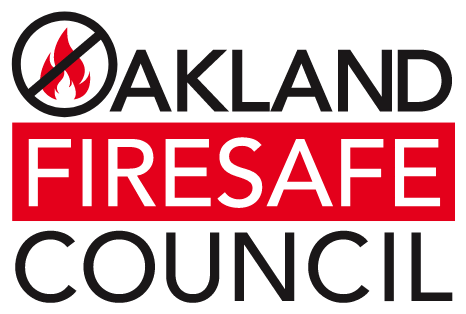Do you want to work with your neighbors to be better prepared and have emergency supplies for all to access during and after an emergency? Here are excellent first-hand accounts of how two local East Bay groups have done this:
Oakland
Maxwell Park Emergency Response Team (MPERT) has been busy making our community better prepared for a major emergency such as earthquake or fire.
So far, after interviewing other communities about how they organized their community, we divided Maxwell Park into ten “Sectors” of about 200 homes each and started an emergency contact list. Since then, we have been building on this structure in several ways:

- Created an MPERT email address and Google Group to facilitate communications.
- Regularly contribute to newsletters, social media and word of mouth outreach to invite new members
- Outreach to businesses, schools and churches to join MPERT and share their emergency plan
- Share preparedness tips to encourage members to prepare themselves and their families
- Encourage members to get CERT or PEP training
- Work with OFD, OPD and the Oakland Firesafe Counsel to support their efforts and further ours
- Partnered with the well-established Maxwell Park Neighborhood Counsel to leveraged their resources
- Offer information and support to members interested in GMRS radios
- Conduct monthly virtual meetings to work on projects that further the MPERT goals
- Established several Incident Command Centers (ICC) to focus emergency response resources
- Obtained a modest grant for starting our community emergency supplies, to be stored at the ICCs
Feel free to reach out to MPERT for further information and collaboration: MPERT.info@gmail.com
Berkeley
The Hearst and Short Neighborhood Association came together over a period of about three years. At first, we gathered for National Night Out. As we all met each other, a few neighbors met to discuss emergency preparedness. Soon we learned that, if we went through some steps, we could qualify for a cache for our neighborhood. This galvanized us into action. There are ten steps to qualify, and, one by one, we accomplished them. Although it was a long process, the reward of becoming friends with a wide variety of neighbors, and forming a real community made the work fun. We started a list-serv and defined the boundaries of our neighborhood, expanding beyond the original blocks. A number of us took classes through CERT.
By the time we were told we would get a cache (see photo), almost every neighbor who could do something, had participated. People had attended CERT classes, gone door to door to meet all neighbors, created a text message tree, named block captains and the like. In the last two years, we have produced a ZOOM training on how to put together a go-bag, we have held a drill for the entire neighborhood to practice what to do and where to do in the event of a major emergency, and we have continued to add to our cache. When someone new moves in, their block captain contacts them, asks if they want to be on the e-mail list, and invites them to neighborhood events. We have also started an e-newsletter. Our experience has been that the cache was a great goal and helped us get to know each other. The cache itself is important but the social networks that have formed are even more so.



